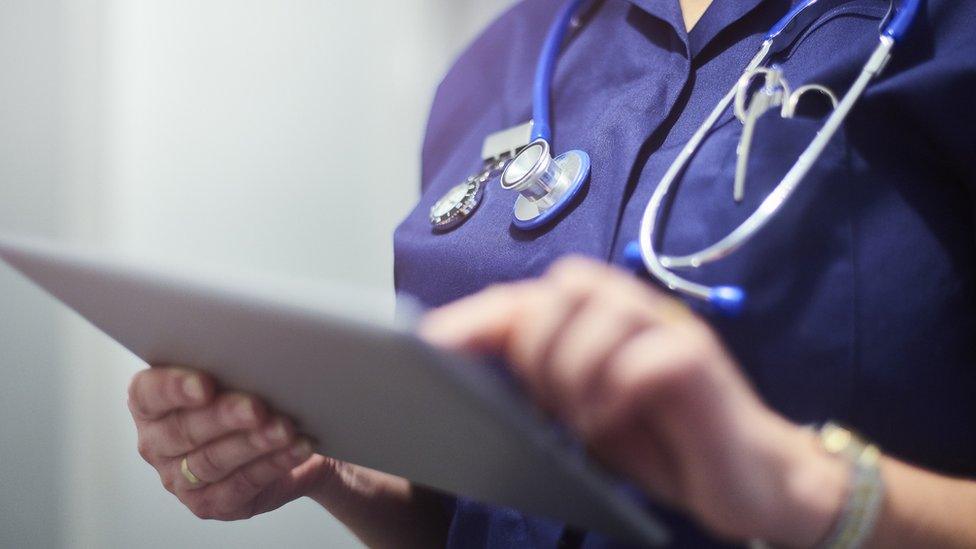Covid: Criticism over Wales self-isolation payment delay
- Published
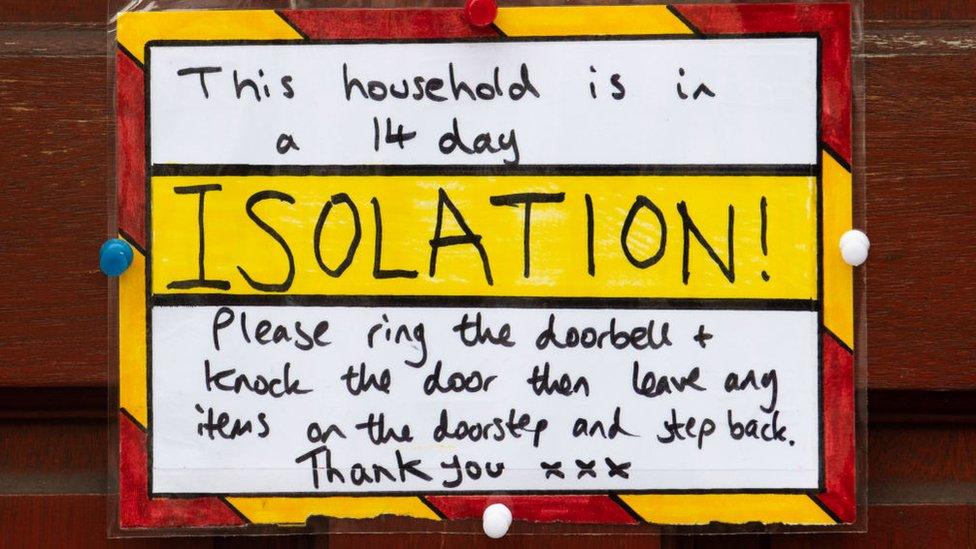
People who are self-isolating should stay at home and not leave for any reason - even to buy food or medicines
A scheme to help low income workers pay bills when self-isolating in Wales has been criticised after delays due to "practical challenges".
From Monday people will be able to claim £500 if they have to stay off work due to coronavirus.
Workers in England and Scotland have had access to payments since October.
Health minister Vaughan Gething said the delay was due to system issues but the Tories said workers "deserved better".
Meanwhile Plaid Cymru said people's ability to self-isolate during the pandemic was being "jeopardised" as the support payments would be taxed.
Concerns had been raised that some on casual and zero-hour contracts had been facing not being able to pay for bills and food if told to isolate.
Last week Merthyr Tydfil council leader Kevin O'Neill told BBC Wales workers were being faced with making stark choices if they were told to stay home for 14 days.
He said there had been cases where employers had threatened staff, not wanting them to be tested, or telling them they would lose their jobs or not be paid if they self-isolate.
He also said some had ordered staff to switch off the tracking on their phones.
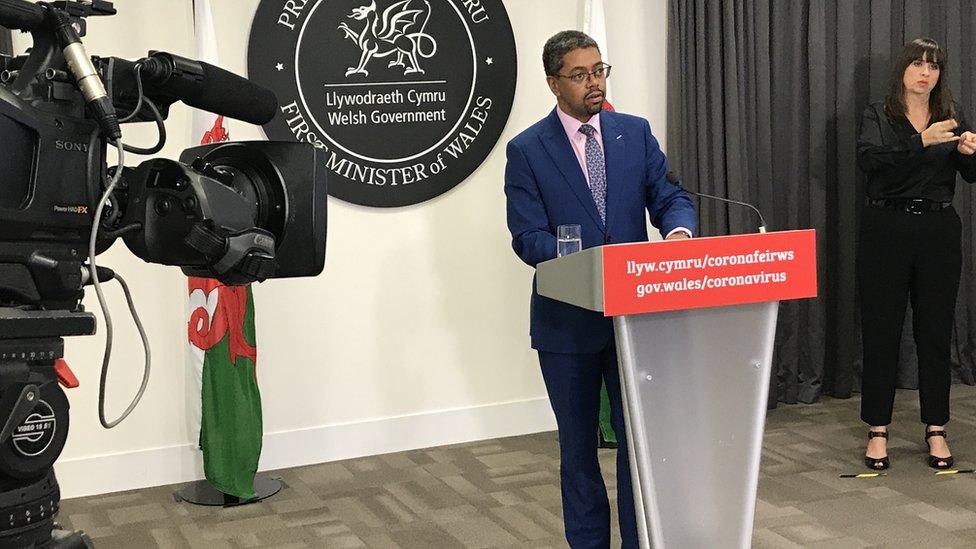
Health Minister Vaughan Gething said the system has taken time to set up
People who have tested positive or have been told to isolate by contact tracers will be able to apply for the £500 self-isolation payment from 15:00 GMT on Monday, if they cannot work from home during that time.
At a press conference on Friday, Mr Gething defended the delay, saying it had taken time to set up the system due to having to "go through local authorities and link up to our test, trace, protect service".
He added the Welsh Government had been in talks with the Department for Work and Pensions as he did not want payments to result in people having their benefits reduced.
Mr Gething said it was "really important" for people to self-isolate if they have coronavirus symptoms "if we're going to break the cycle of infection".
The health minister said payments would be backdated for anyone who had to self-isolate from the "start of November".
But this contradicts an announcement made by First Minister Mark Drakeford, who when he announced the scheme, said people would be able to apply for backdated payments if they tested positive or were told to self-isolate on or after 23 October.
The Welsh Government later clarified that Mr Gething had made a mistake and the payments would be backdated to 23 October.


Only those who are on low incomes, and cannot work from home during that time, and are in receipt of benefits, including Universal Credit, will be eligible for the payment.
The payments will be taxed, the Welsh Government website says, external.
Some councils in Wales said application forms had been online for two days and a number of people had already applied for the support.
Leader of the Welsh Conservatives Paul Davies said messages were confusing and it was not right that workers were missing out on backdated support available across the border.
"These payments have actually been introduced in other parts of the UK for many, many weeks now, and I understand that in other parts of the UK they will be back-dated to September, and that doesn't seem to be the case as far as the Welsh Government is concerned," he said.
"I would urge the Welsh Government to look at that and reconsider that, because it's important that people on low incomes get the support they deserve."
While Plaid Cymru's economy spokeswoman Helen Mary Jones said any payments given to support people during the pandemic should not be taxed.
"If this measure is to be effective in preventing the spread of the virus, it must make it as easy and realistic as possible that people will be able to self-isolate if they test positive or have been in contact with a known positive individual," she said.
- Published9 November 2020
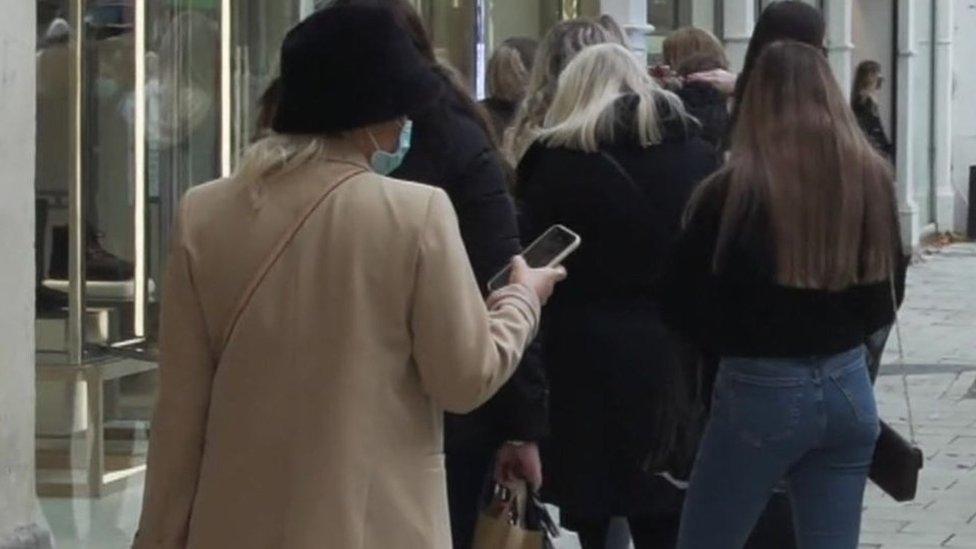
- Published10 November 2020
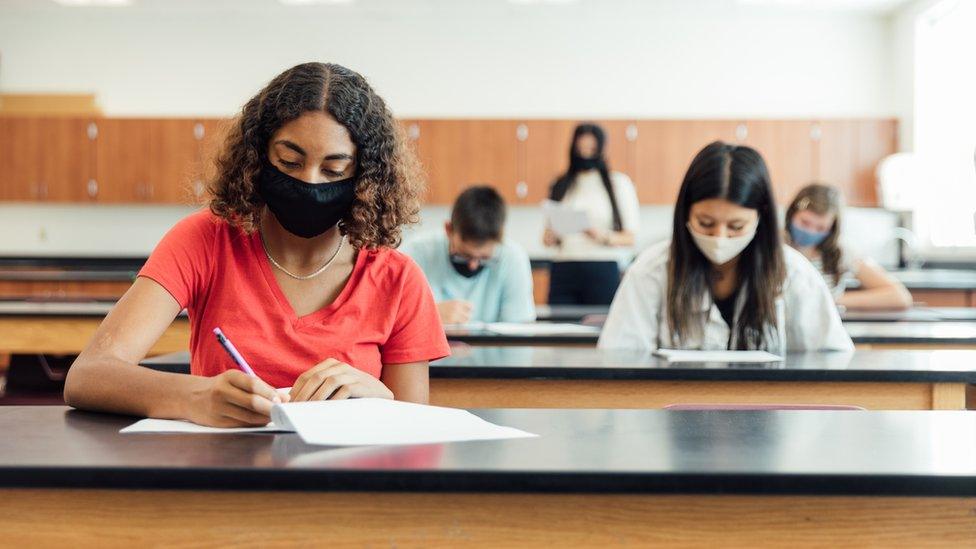
- Published7 November 2020
